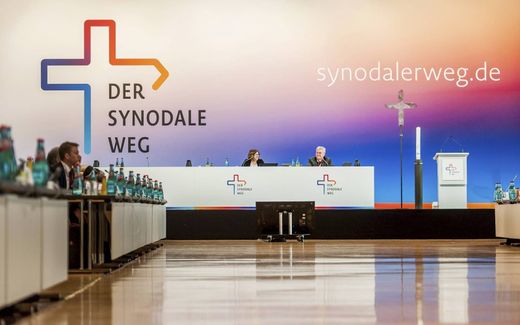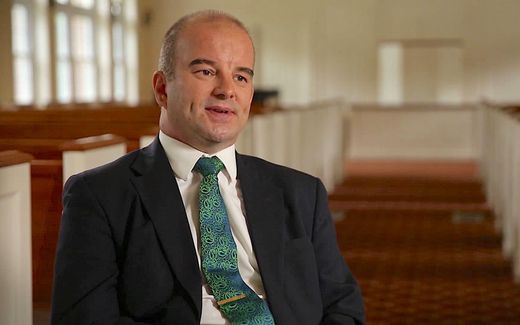How do German Christians view sexuality? That remains the question

A church is decorated for the German queer event Christopher Street Day. Photo EPA, Christopher Neundorf
Christian Life
In Germany, scholars presented a new study that claims that Christians have a very liberal view of sexuality. However, Wolfgang Stock questions this outcome.
Stay up to date with Christian news in Europe? Sign up for CNE's newsletter.
In Germany, a new “study “on sexuality among Christians has sparked lively debate. I put the word “study” in quotation marks because, although more than 10,000 Christians were surveyed, those responsible for the “study “themselves emphasise that the results are not representative. This is because anyone who wanted to could participate in the survey.
Participants were recruited via media and networks with an affinity with the topic, meaning that the “study” mainly included people with a particular interest in the subject. The results may, therefore, reflect a distorted view. After all, people with strong convictions or problems relating to sexuality are more likely to take part.
In politics and business, where opinion polls are commonplace, such a study would be dismissed and set aside. In Germany, however, the Stiftung Christlicher Medien (SCM) and the CVJM University of Applied Sciences in Kassel, which worked on it for four years, published this “study” in two books and presented it at a highly acclaimed conference.
Genders
So what does the study say about the Christian view on sexuality in Germany? Well, the results are not surprising, given the type of participants. Even among those respondents who identified themselves as “highly religious”, there is a liberalisation of attitudes towards sexual ethics. Only a few say they are convinced that sexual intercourse belongs exclusively within marriage. Besides, a third of the participants believe that there are more than two genders.
What I find particularly interesting, however, is the conclusion the researchers draw from this survey. They call Christian communities to develop a “contemporary approach to sexuality [that] should provide guidance without moralising and [...] interpretations that offer relief”.
The YMCA University recommends communities to create “safe spaces” for open and honest discussions about sexuality so that believers can talk about experiences, tensions or problems without fear or shame. The aim is to overcome silence and establish a new culture of dialogue that contributes to a “contemporary sexual ethic”.
Reflection
They also encourage congregations and churches to critically reflect on and actively address their past attitudes hostile to the body and sexuality. At the same time, the consistent prevention and reappraisal of sexualised violence is emphasised as an overall task for all Christian communities.
Besides, the authors of the new report recommend churches to not exclude anyone, and, in particular, include queer Christians more strongly, regardless of the theological position of the churches in these issues.
Above all, the scholars call for churches and congregations to come to a “differentiated sexual ethics” that is oriented towards the “reality of life” and not towards rigid, quantitative rules. In other words, churches must be more flexible when it comes to sexual ethics, the researchers say.
They recommend that Christians muster the courage to critically examine their own sexual ethical convictions and further develop them in theological discourse. Congregations and churches should remain open to processes of transformation and actively work on the future viability of Christian sexual ethics.
Salvation
Here it becomes clear that SCM (the large group of Christian book authors) and a Christian university in Germany no longer regard the Bible as God’s revelation as the ultimate authority, but derive moral behaviour from the public opinion or the lifestyle habits of the masses.
In their view, man is no longer subject to God’s Word, but above it. The Bible becomes one experiential document among many that can be interpreted differently depending on one’s personal point of view. Sin then no longer exists as such, and salvation is hardly necessary.
It will be interesting to see what effects this “study “will have: Will the conclusions and appeals of the liberal authors fizzle out quietly? After all, the study is not representative of all German Christians. Besides, it reveals a very clear liberal perspective and lacks a Biblical normative view.
Or will it further open the doors in churches and congregations in Germany to debates about homosexuality, gender and non-binary sexuality? Study director Tobias Faix says: “We have a duty not to exclude anyone. Christians should have the courage to question old patterns and develop a contemporary sexual ethic.”
Related Articles










